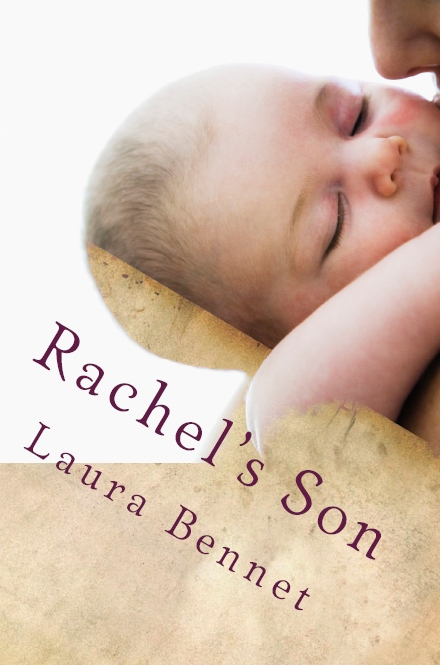
Over the past months, I’ve been dealing with grief in varying degrees and learning how to better cope with the losses in my life. Thus, this four-part series. I didn’t plan on this timing initially, but given the atrocities happening in Israel and Gaza this week, the topic seems appropriate. My prayers are with Israel and all the innocent people on both sides being torn apart by terrorists.
Piled up grief wreaks havoc on our soul, spirit, and body. I’m discovering this first hand.
Maybe when a loved one dies, because we can mourn publicly and hold a ceremony that signals an end, it seems a little easier to walk through the stages of grief and after time accept the outcome.
But what about grieving other losses and disappointments? And what happens when the losses come in multiples or one right after the other and accumulate? Do we know how to grieve? Do we even acknowledge grief in those situations such as estranged family, divorce, moving, or the loss of a job, house or friendship?
Or perhaps we suffer forfeiture in a transition—letting one thing go so we can move into the next?
What if crisis or disaster occurs? Do we recognize that as loss? We didn’t lose anything in Hurricane Ian. But the loss of our favorite memorable places because of a devastated Fort Myers Beach has kept me from returning there even though it’s been nearly a year since the tragedy. It still makes me cry.
We may consider, on a lesser scale, the loss of health, or the ability to be active because of injury or advancing age, or the disappointment of dreams not realized. But they are all losses that leave their mark over the years. What do we do with the emotions resulting from all of these places left empty for various reasons?
What happens if the grief piles up?
Due to some recent events, I’m learning about what the accumulation of grief can do to us. Discussions with a handful of close friends who have all experienced situations ranging from physical challenges, to crisis, or the loss of a loved one has broadened my perspective regarding the grief process, and how we each navigate it.
These conversations, often accompanied by tears (especially mine—I’m a crier), are also helping me deal with and learn to examine my current and past amassed grief.
In this series, I’d like to share my observations in the hope that they will aid others in exploring their grief and the losses leading them there. I’ve broken this into sections to better delve more deeply into this subject. As I grow and learn, I may only be one step ahead; perhaps even a step behind you in the process, but I believe we can journey together.
Not only can we benefit from each other’s experience, but we find comfort and consolation in Jesus, a “man acquainted with sorrow and grief.” Isaiah 53:3 In fact, he bore our pain on the cross so we could relinquish our burdens to him.
In Psalm 10:14, the psalmist says, “You, O God, do see trouble and grief; you consider it to take it in hand.” The same passage goes on to add, “You hear, O Lord, the [depressed in mind or circumstances] [longings] of the afflicted; you encourage them, and you listen to their cry…”
As we explore our feelings, I’m so grateful we have a loving God who walks alongside us, hears our cries, and knows what it’s like to be full of sorrow.
Grief, especially accompanied by trauma can take us down paths of further destruction as it did to my main character, Rachel in Rachel’s Son. If you haven’t read it, and would like to follow the heartache and eventual joy of a woman who’s baby was murdered by Roman soldiers in Bethlehem, you can get the e-book FREE for the next 5 days on Amazon.

Ooh, I can’t wait! Thank you for talking about such an important subject. I know I don’t know how to process grief. I’ve been blessed with very little of it so far, and as I say that, I realize the statement is full of me avoiding. That is kind of what I do. I think happy things and move forward. It has worked for me thus far, but when something happens that opens the floodgates, I cry way too long and way too hard. There’s a lot pent up in there. But as soon as I can, I get control, think happy thoughts, and move on again. Not ideal. I’m excited to read what you have written.
And, btw, I’m in CA, taking care of my daughter who just had surgery, and I started reading Rachel’s Story on the plane ride over last Thursday. I really like it!
LikeLiked by 1 person
I think you’re not alone in this! I didn’t realize how unhelpful my “coping” methods were. And I also have seen how in the psychology world (both secular and Christian) many drag people through decades of counseling sympathizing with the victim, but not giving the help to move forward. Grieving is good; self-pity and victim hood living is not. I think in the Christian world, we’ve gone to one extreme or the other of pushing aside “negative” feelings – isn’t that what it means to be “Joyful in trials”? (I say this tongue-in-cheek) It’s what I believed and lived just as you’re commenting here. Thanks so much for your honest input AND for reading my book! I’m glad you’re enjoying it. It shows the extreme of when we allow our legitimate grief to become bitterness. Enjoy CA! Hug it for me and prayers for healing over your daughter!
LikeLiked by 1 person
Thank you so much, my friend!
LikeLiked by 1 person
This sounds amazing, Laura. I’m dealing with “silent” grief right now over a ton of things. I’ll look forward to walking through this with you. ❤
LikeLiked by 1 person
I’m praying for you! Any and every grief is important and necessary. Thank you for sharing!
LikeLiked by 1 person
Thank you! Thank you! Thank you for digging deeper in these grieving process. I, too, have recently experience this sorrow. Although, I am a woman of faith, I felt the sadness of having to say so long to my mama. We have a tumultuous mother-daughter relationship … but I loved her!
http://maryaperez.com/2023/08/21/full-circle/http:/
/maryaperez.com/2023/09/23/on-bended-knees-and-hearts/
LikeLiked by 2 people
I’m so sorry for your loss! Losing a close loved one is hard no matter what the relationship was like. It’s still a loss with ramifications whether it was difficult or wonderful. I’m glad my post resonated with you and seemed encouraging. It’s so easy to believe the lie that if we love God, we won’t feel any sorrow over losses. That actually keeps us stuck in perpetual grief and God has so much more for us. Thank you so much for reading and sharing! I’m praying you are able to mourn the loss of your mama well within the arms of Jesus!
LikeLiked by 2 people
LikeLiked by 2 people